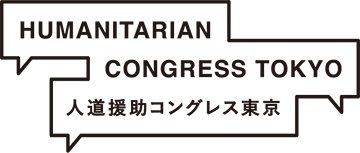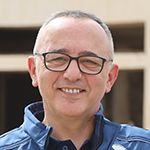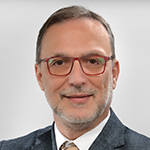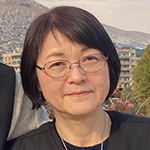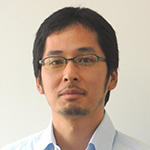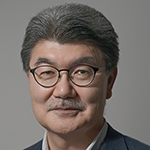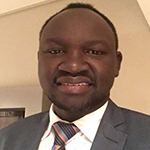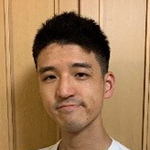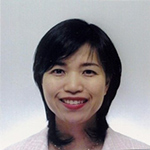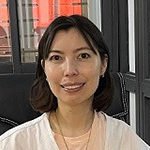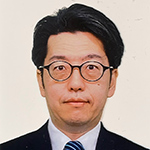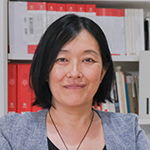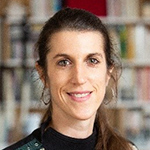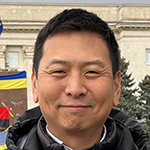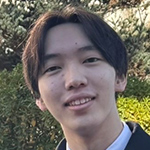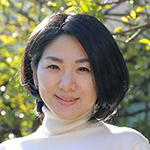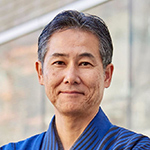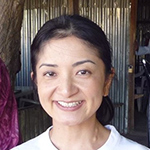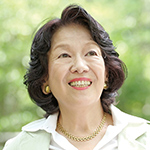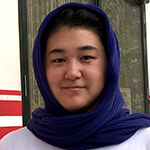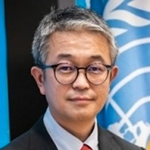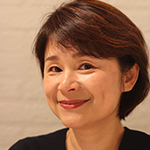Exploring how to revitalize humanitarianism and multilateral cooperation
人道主義と多国間協調、再興の道を探る
April 22nd(Tue), 23rd(Wed)
Webinar/オンライン配信
April 24th(Thu)
At BELLESALLE Takadanobaba and Webinar /
ベルサール高田馬場 & オンライン配信
Simultaneous interpretation available for webinars /
日英同時通訳あり(オンラインのみ)
Hosted by MSF
In cooperation with the ICRC
主催:国境なき医師団
協力:赤十字国際委員会
So many people have lost relatives in Israeli airstrikes. 10 October 2023, Palestinian Territories ©MSF
Registration
We might stop registration before the Congress days, once the number of participants reaches the limit.
定員に達した場合には、開催日前に申し込みを締め切る場合もございます。
Registration for the online sessions on April 22nd and 23rd/ 4月22日.23日オンラインセッション申し込み
Registration for the online sessions on April 22nd and 23rd4/22.23 オンラインセッション申し込み
Registration for the hybrid session on April 24th/ 4月24日ハイブリッドセッション申し込み
先着100名様
Registration for ONSITE participation at BELLESALLE Takadanobaba on April 24th4/24 ベルサール高田馬場での観覧申し込み
※セッションは日本語で行います。会場での同時通訳提供はございません。
※This session will be held in Japanese. No simultaneous interpretation on site.
Notice on personal information for onsite participants
会場参加者の個人情報管理について
Registration for ONLINE participation on April 24th4/24 オンライン参加申し込み
※セッションは日本語で行います。ウェビナーでの同時通訳あり。
※This session will be held in Japanese. Simultaneous interpretation available for the webinar.
Humanitarian Congress Tokyo
Implementing humanitarian aid has become more challenging than ever before. Funding cuts by some donor countries have continued, and the US Government, the largest international donor in the humanitarian and health sectors, is in the process of reviewing significant reductions in aid. In areas of conflict, such as Palestine and Sudan, humanitarian workers face limited access to areas of need, the delivery and distribution of aid is severely restricted, and emergency shelters, schools and hospitals are under attack. The UN Office for the Coordination of Humanitarian Affairs (OCHA) has reported that the death toll of humanitarian workers in 2024 exceeded the previous record of 280 in 2023.
Countries that have consistently supported humanitarian aid are now focusing more on security and domestic politics, and shifting the use of foreign aid to benefit their own strategic interests. As a result, multilateral cooperation seems to be losing momentum, and humanitarian practice is being neglected. The world's most vulnerable people are increasingly forgotten and difficult to reach. How long will goals such as “leave no one behind” and “universal health coverage/health for all” continue to be shared by the international community?
The theme of the Humanitarian Aid Congress Tokyo 2025 is ‘Exploring how to revitalize humanitarianism and multilateral cooperation’. We would like to explore with you ways, approaches and strategies to revitalize humanitarian action and multilateralism, which are now neglected and in retreat.
The Humanitarian Congress Tokyo is primarily intended to promote dialogue among those involved in international cooperation (practitioners, policymakers, researchers and others). It also seeks to raise awareness and foster participation and action among the private sector, the media, students of international cooperation, and all those with a broad interest in humanitarian work. We look forward to having you with us for the Humanitarian Congress Tokyo 2025.
About Humanitarian Congress Tokyo
Médecins Sans Frontières (MSF) has held the Humanitarian Congress Tokyo since 2020 as an annual Japan-based platform for discussing issues related to humanitarian aid. This year's event will be hosted by MSF in cooperation with the International Committee of the Red Cross (ICRC).
人道援助の実施はかつてないほどに難しい局面に立たされています。ドナー諸国からの援助カットが続き、人道援助や保健分野での最大のドナーである米国政府の大幅な援助縮小が検討・進行しています。紛争地においてはパレスチナやスーダンで顕著なように、人道援助従事者が支援を必要としている地域に入ることもままならず、援助物資の搬入・配布も大きく制限され、紛争下の人びとが身を寄せる避難所や学校、病院までもが攻撃にさらされています。国連人道問題調整事務所(OCHA)は、人道援助に従事する職員の2024年の死者数が、過去最悪だった2023年の280人を超えた、と発表しています。
これまで人道援助を積極的に支援してきた国々が、安全保障や国内政策をより重視するようになり、対外的な支援の目的も自国の利益を優先する戦略的な活用へと変化した結果、多国間協調の機運が薄れ、人道主義の実践がないがしろにされているように見受けられます。支援を必要とする世界の最も脆弱な層は、より一層顧みられない存在となり、これらの人びとに支援を届けることはますます困難になっています。「誰一人取り残さない」や「ユニバーサル・ヘルス・カバレッジ/すべての人に健康を」といった目標は、今後も国際社会で共有されるのでしょうか。
2025年の人道援助コングレス東京は、「人道主義と多国間協調、再興の道を探る」をテーマとし、今、明らかに軽視され、後退傾向にある人道主義の実践や多国間協調を再興(再活性化)するための方法やアプローチ、戦略を、皆さまとともに探っていきたいと思います。
「人道援助コングレス東京」は、主に国際協力にかかわる関係者(実務者、政策立案者、研究者等)の間の対話を促すことを主な目的としていますが、民間企業の皆さま、メディアの方々、国際協力分野を学ばれている学生の皆さんをはじめ、広く人道援助に関心をお持ちの方々のご参加をお待ちしております。
人道援助コングレス東京について
日本において人道援助をめぐる諸問題を共に考える場をつくりたいと考え、国境なき医師団(MSF)は2020年より「人道援助コングレス東京」というプラットフォームを開設し、毎年開催しています。本年は、主催・国境なき医師団、協力・赤十字国際委員会という形で開催いたします。
Time Table(Japan Time)
Programme
We will update the information on the Panelists and Moderators.
パネリスト及びモデレーターに関しましては、随時更新します。
以下敬称略
Professional titles omitted below
Opening & Online Session 1
April 22nd (Tue) 17:00-18:50 (Webinar)
Syria, now and in the future
シリア、今そして未来へ
Supported by Japan Platform / 協力:ジャパン・プラットフォーム(JPF)
Panelists:
Faddy Sahloul, Founder and CEO of Hand in Hand for Aid and Development (HiHFAD)
Fady Antoine Kardous, Founder, Kardous Law Office
Yayoi Yamazaki, Co-founder of IBRA WA KHAYT / Auditor for the NPO Stand with Syria Japan (SSJ)
Yoshifumi Kagehira, Area Manager of Middle East and Europe, AAR Japan
Reem Mougheith, Regional Humanitarian Representative for the Middle East and North Africa, MSF
Moderator:
Tsutomu Ishiai, Senior Staff Writer, the Asahi Shimbun, Visiting Professor, Doshisha University, Kyoto, Japan
パネリスト:
ファディ・サハルール(ハンド イン ハンド フォー エイド アンド デベロップメント (HiHFAD) 創設者兼CEO)
ファディ・アントワーヌ・カルドゥース(カルドゥース法律事務所 創設者)
山崎やよい(イブラ・ワ・ハイト共同代表 / Stand with Syria Japan - SSJ 監事)
景平義文(難民を助ける会(AAR Japan)中東・ヨーロッパ地域マネジャー)
リーム・ムゲイス(国境なき医師団 中東・北アフリカ地域人道・外交担当代表)
モデレーター:
石合力(朝日新聞編集委員)
Last December, after more than 10 years of civil war, Syria’s ruling regime collapsed and a new interim government was established. The humanitarian situation in the country remains grave, with 16.5 million people in need of assistance and 7.4 million internally displaced as of February 27th (OCHA). Nearly 1.2 million people returned to their places of origin, but some have returned to displacement camps after visiting their places of origin and finding their homes destroyed. The threat of unexploded ordnance remains throughout the country, and limited public services have prevented people from returning home and rebuilding their lives. Clashes and violence continue in northeastern and southern Syria, with reports of civilian casualties and limited humanitarian access. The humanitarian response is severely underfunded, with only 10 per cent of the US$1.2 billion needed by March secured (OCHA). This session will examine the humanitarian situation across Syria and the challenges faced by aid organizations; the current state of human rights; and what the international community can and should do to support people in Syria.
10年以上にわたる内戦を経て、昨年12月に旧政権が崩壊し、新たな暫定政権が誕生したシリア。人道状況は今なお深刻で、2月27日時点で1,650万人が人道援助を必要とし、740万人が国内避難民となっている(OCHA)。120万人近くが出身地に戻ったが、帰っても自宅が破壊されたことを知り、国内避難民キャンプにまた戻らざるを得なかった人びともいる。不発弾のリスクも高く、また公的なサービスが限られていることも、人々の帰還や生活再建を阻む要因となっている。シリア北東部や南部などで衝突や暴力が起きており、民間人の死傷者が出ているうえ、人道的アクセスは今なお制限されている。シリアに対する人道的対応は著しく資金不足に陥っており、3月までに必要な12億ドルのうち、確保できたのは10%に過ぎない(OCHA)。
本セッションでは、シリア内の異なる場所での人道ニーズ、援助活動が直面する課題、人権分野の現状や取り組みを把握し、今後いかに取り組んでいくべきかを議論する。
Online Session 2
April 23rd (Wed) 17:00-18:30
Vaccination in humanitarian settings - to ensure that no one is left behind, especially vulnerable populations
人道危機下のワクチン接種 ー特に脆弱な人びとを取り残さないためにー
Panelists:
Sarah Wanyoike, Vaccine Preventable Diseases Team Lead_ World Health Organization (WHO) - Inter-Country Support Team (IST) - Eastern and Southern Africa
Kediende Mapuor Akec Chong, Director General for Preventive Health Services and Emergency Response, Ministry of Health, Republic of South Sudan
Mugen Ujiie, MD, Ph.D, National Center for Global Health and Medicine (NCGM), Disease Control and Prevention Center, Head of Travel Clinic
Drew Aiken, Medical Advocacy Advisor for MSF Operational Centre Barcelona-Athens (OCBA), Center for Applied Reflection of Humanitarian Practice (ARHP)
Keita Yoshii, Epidemiologist, MSF
Moderator:
Harumi Gomi, MD, MPH, DTM&H, Professor and Chair, Department of International Health Professions Education, Professor of Medicine, Center for Infectious Diseases, International University of Health and Welfare School of Medicine
Moderator change due to circumstances
Sara Bechstein, Humanitarian Affairs Officer, Médicins Sans Frontières (MSF) / Representative for Medical External Affairs, MSF Japan
パネリスト:
サラ・ワニョイケ(世界保健機関(WHO)‐国間サポートチーム(IST)‐東部・南部アフリカ ワクチンで予防可能な疾病チームリード)
ケディエンデ・マプオル・アケク・チョン(南スーダン共和国保健省 予防医療サービスおよび緊急対応担当局長)
氏家無限(国立国際医療研究センター 国際感染症センター トラベルクリニック医長)
ドリュー・エイケン(国境なき医師団 オペレーションセンター バルセロナ&アテネ、医療アドボカシーアドバイザー、人道援助活動リフレクションセンター(ARHP))
吉井啓太(国境なき医師団 疫学者)
モデレーター:
⽮野(五味)晴美(国際医療福祉⼤学医学部 国際医療者教育学 教授(代表)、感染症学 教授)
都合によりモデレーター変更
ベヒシュタイン紗良(国境なき医師団(現地) アドボカシー担当(Humanitarian Affairs Officer)/ 国境なき医師団日本(事務局) メディカル・アフェアーズ代表)
With recent advances in medical technology, treatments and preventive measures against many infectious diseases are becoming more widely available. Vaccines are one of the most effective measures to prevent infectious diseases, such as cholera, diphtheria and measles. The Essential Programme on Immunization, or EPI, is a World Health Organization initiative to ensure equitable access to vaccines for all children, regardless of location or economic status. In 2024 EPI celebrated its 50th anniversary. Due in part to these efforts, vaccination coverage has gradually increased.
However, since the COVID-19 pandemic, global vaccination coverage, especially in low- and middle-income countries, has declined, and in many countries it has not yet returned to pre-2019 levels.
The Immunisation Agenda 2030 aims to leave no one behind on immunisation. But are we achieving this goal?
Many children continue to miss out on their basic vaccines, especially children in African countries. The reasons vary from weak public health systems, inadequate healthcare facilities and limited human resource capacity to over-reliance on financial support from international donors, notably Western countries. In this session, speakers from humanitarian aid organisations, international bodies including WHO and medical and research institutions, and government officials will explore ways to ensure that vaccines reach those who are particularly vulnerable so they are not left behind.
医療技術の進歩に伴い、多くの感染症に対しての治療法や予防法も普及しつつある。ワクチンは、コレラやジフテリア、はしかなどの感染症を予防する最も効果的な手段の一つである。「予防接種拡大計画(EPI: Essential Programme on Immunization)」は、場所や経済的地位に関係なくすべての子どもが公平に基本的なワクチンの接種を受けられることを目指す、世界保健機関(WHO)の取り組みで、2024年に50周年を迎えた。これらの対策の効果もあり、徐々にワクチン接種率は上昇してきた。
しかし、新型コロナウイルス感染症の世界的まん延以降、特に低・中所得国を中心に世界のワクチン接種率は如実に下がっており、未だに多くの国が2019年以前の水準に達していない。予防接種アジェンダ2030(The Immunization Agenda 2030)は誰ひとり予防接種から取り残さないことを目標としている。しかし、私たちはこれを達成できるのだろうか。
特にアフリカ諸国では、いまだに多くの子どもたちが基本的なワクチン接種を受けられない状況にある。その理由は、脆弱な保健制度や不十分な医療体制、限られた人的資源、また欧米諸国を中心とする国際ドナーの資金援助に依存する状況など、さまざまである。このセッションでは、人道援助団体、WHOなどの国際機関、医療・研究機関、政府関係者など、様々な立場のスピーカーが集まり、特に脆弱な立場の人びとを「取り残すことなく」ワクチンを届けるための道を模索する。
Online Session 3
April 23rd (Wed) 19:00-20:30
Healthcare is not a target: IHL and the frontlines of medical protection in armed conflicts
医療は攻撃対象ではない:国際人道法と紛争下の医療保護の最前線
Panelists:
Hyo-Jeong Kim, Attacks on Health Care initiative Lead, World Health Organization (WHO)
Koichiro Komiyama, Senior research scholar at the Keio University Global Research Institute
Shoko Hanzawa, Head of Delegation in Japan, ICRC
Claude Maon, Legal Director, Intersectional Legal Department, MSF
Moderator:
Sho Beppu, NHK Senior International Correspondent
パネリスト:
キム・ヒョジョン(世界保健機関(WHO)「医療への攻撃」イニシアティブ リード)
小宮山功一朗(應義塾大学SFC研究所 上席所員)
榛澤祥子(ICRC駐日代表)
クロード・マオン(MSF法務ディレクター)
モデレーター:
別府正一郎(NHK報道局記者)
Attacks on healthcare facilities and personnel in conflict zones make it increasingly difficult to carry out life-saving services. Despite the protections enshrined in International Humanitarian Law (IHL), medical services and other humanitarian activities continue facing serious threats. In this session, we will look into what lies behind these attacks and what is their humanitarian impact. How can we ensure that IHL is respected? We will discuss the measures needed to safeguard access to healthcare in conflict-affected areas.
紛争地では、医療施設や医療従事者が危険にさらされ、命を救うための活動の継続が困難な状況に陥っている。 国際人道法(IHL)により医療も人道支援も保護されなければならないが、実際の戦時下でその保護が十分に機能しているとは言い難い。本セッションでは、医療施設が攻撃される背景やその結果としてもたらされる人道上の影響に斬りこむ。IHLの遵守はどうやったら徹底できるのか。紛争地で医療へのアクセスを守るために必要な対応策について議論する。
Hybrid Session 1
April 24th (Thu) 15:30-16:40
At BELLESALLE Takadanobaba, Meeting room1 and Webinar/
ベルサール高田馬場 会議室1、オンライン配信
セッションは日本語で行います。オンラインのみ同時通訳あり。
This session will be held in Japanese. Simultaneous interpretation available only for the webinar.
Discussion on humanitarian aid from the perspective of Japanese youth
日本のユースと考える人道援助の現在地とこれから
Panelists:
Sayuri Imai, 2nd-year student at N high school, Youth with Refugees Platform
Kaido Sato, Sub Project Chief, Rohingya Project, S.A.L., officially authorized Student Club of Keio University
Yuka Takeshita, Editor-in-Chief of ‘with Planet’, the Asahi Shimbun
Yuji Uesugi, Professor, Faculty of International Research and Education, School of International Liberal Studies, Waseda University
Aya Sonoda, Outreach Manager, Field Human Resources, MSF Japan
Moderator:
Shiori Takeda, 4th-year student at Waseda University, School of International Liberal Studies
Shiho Suzuki, 4th-year student at Keio University, Faculty of Law, Department of Political Science
パネリスト:
今井小百合(N高等学校2年生/ユースなんみんプラットフォーム)
佐藤快童(慶應義塾大学公認学生団体S.A.L.ロヒンギャプロジェクト 副代表)
竹下由佳(朝日新聞 with Planet編集長)
上杉勇司(早稲田大学国際学術院 / 国際教養学部 / 国際コミュニケーション研究科 教授)
園田亜矢(国境なき医師団 フィールド人事部 アウトリーチ・マネジャー)
モデレーター:
武田詩織(早稲田大学国際教養学部4年生)
鈴木志歩(慶應義塾大学法学部政治学科4年生)
International solidarity, a central pillar of the humanitarian system, is receding as the emphasis on national political interests and security grows. International divisions are deepening, with individual rights and freedoms coming under threat. Media reports the fragility of law and democracy. In an era where the foundations of liberal democracy appear to be crumbling, the importance of reaching the next generation of young people is essential. This session is a roundtable discussion inviting Japanese youth from student organisations involved in humanitarian aid, international cooperation and development to interact with MSF staff, media professionals and scholars. Sharing insights into the current state of youth engagement and the challenges faced by student-led initiatives, we aim to foster a dynamic discussion and explore strategies for effectively engaging young people in these critical global issues and the future of humanitarian aid.
人道援助を支えてきた国際社会の連帯が自国の政治的利益や安全保障を優先する姿勢により後退し、分断が進む中、個人の権利や自由が脅かされ、法の支配や民主主義も危うい状況が日々報道されている。リベラルデモクラシーが瓦解しつつあると感じられる昨今、次世代を担う若者への国際課題に関する意識啓発や支援活動の在り方が問われている。本セッションでは、日本を拠点に人道援助、国際協力や開発に取り組む学生団体の代表と共に、MSFスタッフ、メディア関係者、学者が人道援助の未来について討論する。ユースの現在地や活動団体の課題を共有し、活発な議論を通じて、若者への働きかけの方策を考える機会としたい。
Hybrid Session 2 & Closing
April 24th (Thu) 17:00-18:45
At BELLESALLE Takadanobaba, Meeting room1 and Webinar/
ベルサール高田馬場 会議室1、オンライン配信
セッションは日本語で行います。オンラインのみ同時通訳あり。
This session will be held in Japanese. Simultaneous interpretation available only for the webinar.
Exploring how to revitalize humanitarianism and multilateral cooperation
人道主義と多国間協調、再興の道を探る
Panelists:
Tomoko Abe, Member of the House of Representatives
Yuka Takeshita, Editor-in-Chief of ‘with Planet’, the Asahi Shimbun
Junko Utsumi, Middle East and East Europe Regional Manager of Peace Winds Japan, A Board Member of Japan Campaign to Ban Landmines (JCBL)
Shiho Suzuki, 4th-year student at Keio University, Faculty of Law, Department of Political Science
Chika Suefuji, Head of Programme, MSF
Lecturer:
Hiroshi Kan Sato, President, Tokyo Institute for Development Sociology
Comment:
Kazuho Taguchi, Director of Humanitarian Assistance and Emergency Relief Division, International Cooperation Bureau, Ministry of Foreign Affairs of Japan
Moderator:
Miki Ebara, Journalist/Documentarist, Former NHK News Anchor/Executive Producer
パネリスト:
阿部知子(衆議院議員)
竹下由佳(朝日新聞 with Planet編集長)
内海旬子(ピースウィンズ・ジャパン海外事業部中東・東欧マネジャー / 地雷廃絶日本キャンペーン(JCBL)理事)
鈴木志歩(慶應義塾大学法学部政治学科4年生)
末藤千翔(国境なき医師団 活動責任者)
講演:
佐藤寛(開発社会学舎 主宰)
コメント:
田口一穂(外務省 国際協力局 緊急・人道支援課長)
モデレーター:
榎原美樹(ジャーナリスト/ドキュメンタリスト、元NHK記者・キャスター)
Humanitarian aid is facing major funding cuts from donor countries, including the United States. In field operations, such as in Palestine and Sudan, humanitarian workers face limited access to areas of need, the delivery and distribution of aid is severely restricted, and emergency shelters, schools and hospitals are under attack. Given the current situation in which multilateral cooperation seems to be losing momentum, and the humanitarian practice is being neglected, this session will review the relationship between international politics and humanitarian aid, and discuss with speakers from various fields what is needed and what can be done within Japanese society to strengthen the understanding, support and practice of humanitarianism and multilateralism.
今日、人道援助活動は、米国をはじめとするドナー国からの援助カットに直面し、活動地においてはガザやスーダンで顕著なように人道援助従事者が支援を必要としている地域に入ることもままならず、援助物資の搬入・配布も大きく制限され、避難所や学校、病院までもが攻撃にさらされている。多国間協調や援助協調の機運が薄れ、人道主義の実践がないがしろにされているように見受けられる現状を踏まえ、本セッションでは、国際政治と人道援助の関係を見つめ直すとともに、日本社会から、人道主義と多国間協調への理解や支持、実践を盛り立てていくために必要なこと、できることを、多様な分野からのスピーカーを迎えて議論する。
Registration
We might stop registration before the Congress days, once the number of participants reaches the limit.
定員に達した場合には、開催日前に申し込みを締め切る場合もございます。
Registration for the online sessions on April 22nd and 23rd/ 4月22日.23日オンラインセッション申し込み
Registration for the online sessions on April 22nd and 23rd4/22.23 オンラインセッション申し込み
Registration for the hybrid session on April 24th/ 4月24日ハイブリッドセッション申し込み
先着100名様
Registration for ONSITE participation at BELLESALLE Takadanobaba on April 24th4/24 ベルサール高田馬場での観覧申し込み
※セッションは日本語で行います。会場での同時通訳提供はございません。
※This session will be held in Japanese. No simultaneous interpretation on site.
Notice on personal information for onsite participants
会場参加者の個人情報管理について
Registration for ONLINE participation on April 24th4/24 オンライン参加申し込み
※セッションは日本語で行います。ウェビナーでの同時通訳あり。
※This session will be held in Japanese. Simultaneous interpretation available for the webinar.
Archive
Tackling the Crisis of Humanitarian Aid
人道援助の危機に立ち向かう
The Humanitarian Congress Tokyo 2024 was held on April 23, 24 and 25, with simultaneous interpretation between Japanese and English. The audio is in the speaker's language, so please use the automatic translation function on YouTube if necessary.
人道支援コングレス東京2024は、4月23日、24日、25日の3日間にわたり、日英同時通訳付きで実施されました。アーカイブ映像の音声は話者の言語となりますので、YouTube自動翻訳機能をご利用ください
Opening & Hybrid Session: How Can We Tackle the Crisis of Humanitarian Aid?/ 開会挨拶&ハイブリッドセッション:人道援助の危機にどう立ち向かうか?
Online Session 1: Sexual Violence against the Most Vulnerable - What is Necessary for a Better Future?/ オンラインセッション1: 脆弱な立場の人びとを襲う性暴力 ~未来のために必要な対応~
Online Session 2: Navigating Business and Human Rights Challenges - Critical Minerals and Humanitarian Concerns/ オンラインセッション2:「ビジネスと人権問題」にどう立ち向かうか ~紛争鉱物と人道上の懸念~
Online Session 3: Keep Our Eyes on Sudan/ オンラインセッション3:スーダンに関心を
Online Session 4 & Closing: Climate Change and Humanitarian Crisis: Navigating the Future Together/ オンラインセッション4& 閉会挨拶:気候変動と人道危機: 共に未来を切り拓く
A spotlight on the neglected
顧みられない危機に光を
The Humanitarian Congress Tokyo 2023 was held on April 11, 17 and 18, with simultaneous interpretation between Japanese and English. The audio is in the speaker's language, so please use the automatic translation function on YouTube if necessary.
人道支援コングレス東京2023は、4月11日、17日、18日日の3日間にわたり、日英同時通訳付きで実施されました。アーカイブ映像の音声は話者の言語となりますので、YouTube自動翻訳機能をご利用ください。
Opening & Hybrid Session: What determines whether a conflict is in the spotlight or neglected, and what are the consequences? /開会挨拶&ハイブリッドセッション:世界的な注目を集める紛争と集めない紛争。その違いはいかに生まれ、どのような影響をもたらしているのか。
Online Session 1: Time to face up to neglected tropical diseases/オンラインセッション2:顧みられない熱帯病に立ち向かう
Online Session 2: Myanmar today/オンラインセッション2:ミャンマーの今を探る
Online Session 3: How to navigate the triple nexus: challenges to humanitarian principles? /オンラインセッション3:人道・開発・平和はどのように共存できるか~人道原則への挑戦?~
Online Session 4 & Closing: The Horn of Africa: how to focus attention on this troubled region? /オンラインセッション4:アフリカの角──国際社会の関心を呼び起こすためには?
Rethinking humanitarian action in a changing world
「今、あらためて人道を考える」
レポート記事はこちら:【イベント報告】人道援助コングレス東京2022「今、あらためて人道を考える」
The Humanitarian Congress Tokyo 2022 was held on May 19 and 20, with simultaneous interpretation between Japanese and English. The audio is in the speaker's language, so please use the automatic translation function on YouTube if necessary.
人道支援コングレス東京2022は、5月19日及び20日の2日間にわたり、日英同時通訳付きで実施されました。アーカイブ映像の音声は話者の言語となりますので、YouTube自動翻訳機能をご利用ください。
Opening Remarks and Opening Session: Conflict in Ukraine and International Humanitarian Law/ 開会挨拶、ウクライナ紛争と国際人道法
Session 1:Time to face the “Silent Pandemic” of AMR – Roles of Medical and Humanitarian Actors/ 命をおびやかすAMR の「サイレント・パンデミック」に立ち向かう──医療・人道アクターの役割
Session 2: The Role of the Private Sector in Responding to Increasingly Complex and Protracted Humanitarian Crises/ 複雑化・長期化する人道的危機への対応における民間セクターの役割
Session 3: To End Prolonged Humanitarian Crisis in Afghanistan/ 長きにわたるアフガニスタンの人道危機、出口を求めて
Future of Humanitarian Action – truly leaving no one behind
「人道援助の未来――真に、“誰一人取り残さない”ために」
The Humanitarian Congress Tokyo 2021 was held on May 13 and 14, with simultaneous interpretation between Japanese and English. The audio is in the speaker's language, so please use the automatic translation function on YouTube if necessary.
人道支援コングレス東京2021は、5月13日及び14日の2日間にわたり、日英同時通訳付きで実施されました。アーカイブ映像の音声は話者の言語となりますので、YouTube自動翻訳機能をご利用ください。
Opening Remarks and Opening Session: Future of Humanitarian Action – truly leaving no one behind/ 開会挨拶、人道援助の未来――真に、“誰一人取り残さない”ために
Session 1:A decade of loss – Syria after ten years of crisis/ 破壊と喪失の10年‐シリアが背負う大きな代償
Session 2: Climate Change and Conflict: When Rain Turns to Dust/ 気候変動と紛争:大地が干上がる時
Session 3: Massive setback to decades of progress in women’s and child health: the impact of the pandemic beyond COVID-19, and Closing Remarks/ 女性・子どものヘルス分野における数十年の成果からの大幅な後退:新型コロナウイルス感染症の二次的影響 閉会挨拶
Challenges of Humanitarian Aid amid COVID-19
「コロナ禍における人道援助とその課題」
The Humanitarian Congress Tokyo 2020 was conducted with simultaneous interpretation between Japanese and English. The audio is in the speaker's languages, so please activate the auto-translate on YouTube if necessary.
人道援助コングレス東京2020は日英同時通訳付きで実施されました。音声は話者の言語となりますので、必要に応じてYouTubeの自動翻訳機能をご利用ください。
Pre-session: Implementation of humanitarian medical aid by MSF and the challenges MSF faces / MSFによる人道医療援助の実践と直面する危機
Speaker:
Shinjiro Murata, General Director, MSF Japan
Guest speaker:
Reshma Adatia, International Operations and Humanitarian Representation Coordinator, MSF International
発表者:
村田慎二郎(MSF日本事務局長)
ゲストスピーカー:
レシュマ・アダティア(MSFインターナショナル 人道・外交担当代表)
Opening remarks and Session1: Attacks on medical care / 開会挨拶、医療施設に対する攻撃
開会挨拶
久留宮隆(MSF日本会長)
Panelists:
Maciej Polkowski, Head of the Health Care in Danger initiative, International Committee of the Red Cross (ICRC),
Leonard Rubenstein, Chair, Safeguarding Health in Conflict Coalition
Shinjiro Murata, General Director, MSF Japan
Moderator:
Shuichi Furuya, Professor of law at Waseda Law School
パネリスト:
マーチェイ・ポルコウスキ(赤十字国際委員会Health Care in Danger プロジェクト統括)
レオナルド・ルーベンスタイン(Safeguarding Health in Conflict Coalition代表)
村田慎二郎(MSF日本事務局長)
モデレーター:
古谷修一(早稲田大学大学院法務研究科教授)
Session2: The global equitable access to the COVID-19 vaccine, therapeutics and diagnosis / 新型コロナウイルスワクチン・治療・検査への公平なアクセス
Panelists:
Dr. Sylvie Briand, Director of Infectious Hazard Management – Pandemic and Epidemic Disease department, WHO
Kaori Nakatani, Head of Office, DNDi Japan
Dr. Sidney Wong, Interim Co-Director MSF Access Campaign
Moderator:
Takashi Kurumiya, President, MSF Japan
パネリスト:
シルヴィ・ブリアン(医師、WHO感染リスク管理―エピデミック・パンデミック疾患対策部ディレクター)
中谷香(特定非営利活動法人DNDi Japan事務局代表)
シドニー・ウォン(医師、MSFアクセス・キャンペーン共同ディレクター)
モデレーター:
久留宮隆(MSF日本会長)
Session3: The Humanitarian situation in Yemen and Closing remarks / イエメンの人道状況、閉会挨拶
Panelists:
Hiroshi Sato, Chief Senior Researcher, IDE-JETRO
Yukimi Ogaki, World Food Programme (WFP) Yemen
Atsuhiko Ochiai, Former MSF Project Coordinator in Yemen
Moderator:
Takeshi Fujitani, Assistant to Executive Editor, The Asahi Shimbun
パネリスト:
佐藤寛(日本貿易振興機構(ジェトロ)アジア経済研究所 上席主任調査研究員)
大垣友貴美(国連世界食糧計画(WFP)イエメン事務所)
落合厚彦(元MSFイエメンプロジェクト責任者)
モデレーター:
藤谷健 (朝日新聞 編集担当補佐)
閉会挨拶
久留宮隆(MSF日本会長)
